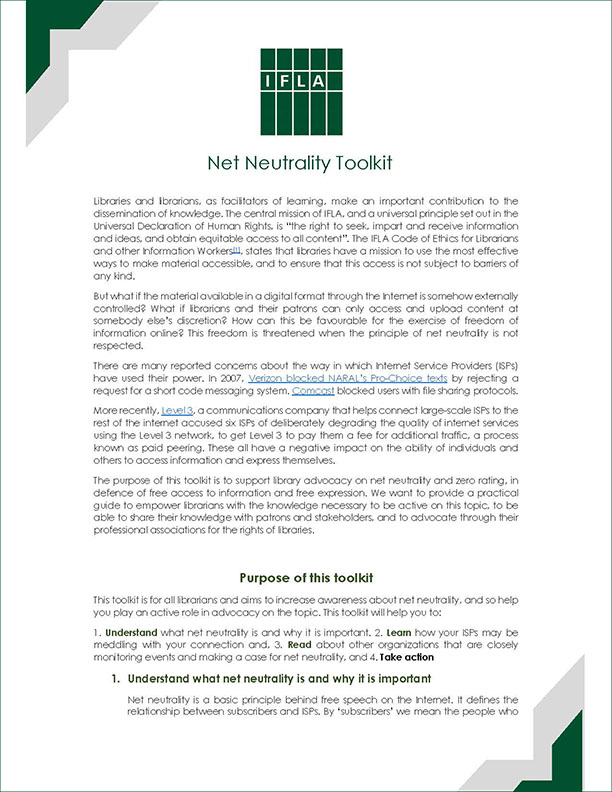IFLA launches a new Net Neutrality Toolkit
27 June 2018
 Imagine for a moment that your country has adopted a policy which means that the price of your car determines the speed limit that applies to it. Would that be fair, in your opinion? Most likely not. The policy will allow the wealthy to get to their destinations faster, leaving those with less money in the slow lane. Not in line with the duty of governments to treat its citizens differently.
Imagine for a moment that your country has adopted a policy which means that the price of your car determines the speed limit that applies to it. Would that be fair, in your opinion? Most likely not. The policy will allow the wealthy to get to their destinations faster, leaving those with less money in the slow lane. Not in line with the duty of governments to treat its citizens differently.
Net neutrality has often been compared to an imaginary highway where more expensive cars can travel at a faster speed. If we substitute internet packages for cars, cables for a cement and steel highway, and your government with the Internet Service Providers, the analogy still holds true.
Just like cars, digital content should not be allowed to travel on preferred, or faster, highways. The practice of providing preferential treatment to particular websites or content – in violation of Net neutrality – creates discrimination and limits freedom of expression and access to information. Conversely, when Net neutrality is protected, your right to access digital content is not at the mercy of commercial decisions.
Libraries have a central role in the debate around net neutrality because their mission is to use the most effective ways to make material accessible, and to ensure that this access is not subject to barriers of any kind.
To contribute to the advocacy work of libraries, IFLA has produced a toolkit to support library action and engagement on the question of Net neutrality and zero rating. This toolkit provides a practical guide to empower librarians with the knowledge necessary to talk about this topic, to be able to share their knowledge with patrons and stakeholders, and to advocate through their professional associations for the rights of libraries.
You can access the toolkit here.